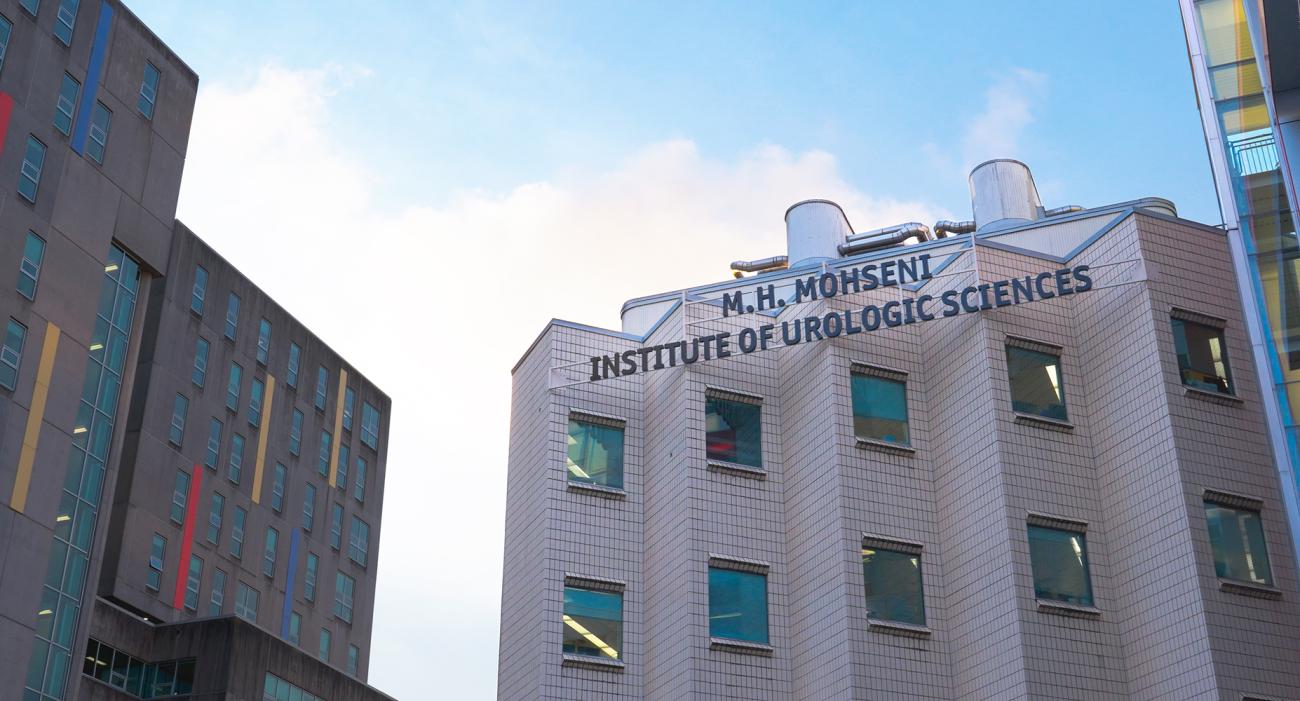
The Institute will generate advancements for the treatment of urologic conditions, bringing more hope to all British Columbians.
The Vancouver Coastal Health Research Institute (VCHRI) is pleased to welcome a new establishment to its growing roster of world-renowned research centres and programs. The M. H. Mohseni Institute of Urologic Sciences, a leading institute of its kind in Canada, launched in December 2024. Its establishment was made possible by over $65 million raised through a landmark campaign by the VGH & UBC Hospital Foundation.
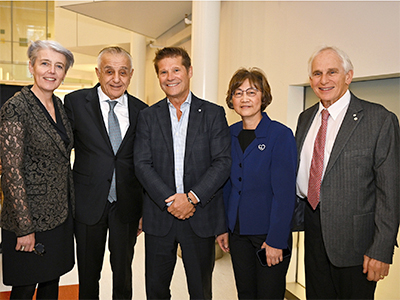
(L-R) Angela Chapman, Mohammad H. Mohseni, Dr. Martin Gleave, Dr. Teresa Tsang, Dr. Larry Goldenberg
Helmed by Dr. Martin Gleave, who previously served as director of the Vancouver Prostate Centre from 2006 to 2024, the M. H. Mohseni Institute of Urologic Sciences builds upon the successes of an esteemed team of VCHRI investigators who are making great strides in diagnostic, preventative and therapeutic interventions across a broad spectrum of urologic conditions, which affect the urinary tract, kidneys, bladder, prostate and reproductive organs.

“Discoveries will be tested in our Institute to support start-up biotech companies and will create new treatments to help patients across B.C. and Canada.”
Six specialized centres within the M.H. Mohseni Institute of Urologic Sciences
Multidisciplinary research underway at the Institute delivers scientific breakthroughs to patients in British Columbia and beyond. The Institute spans six specialised research centres: the Vancouver Prostate Centre, Centre for Kidney Stones and Minimally Invasive Surgery, Centre for Functional Urology and Reconstructive Surgery, Centre for Kidney Transplantation and Immunology, Reproductive and Sexual Medicine Centre and Centre for Adolescent and Transitional Urology.
As an established centre within VCHRI, the Vancouver Prostate Centre (VPC) continues to lead in the discovery, development and translation of cancer therapeutics. In July 2024, VCHRI researcher Dr. Peter Black was appointed the new director of the VPC with a vision to strategically grow and expand the Centre’s research on prostate, bladder and kidney cancers, respectively.

At the Centre for Kidney Stones and Minimally Invasive Surgery, innovative research is focusing on the design of new medical devices to improve treatment and prevent complications associated with kidney stone disease. Advanced techniques are being investigated to support the development of novel intestinal microbiome-based treatments and preventative strategies. To help enhance patient care for those suffering from kidney stones, artificial intelligence is paired with CT scan images to identify kidney stone composition. Advancements in machine learning are being explored as approaches to lessen the invasiveness and morbidity of surgical procedures to remove stones and urinary blockages, such as those due to benign prostate growth and kidney stones.
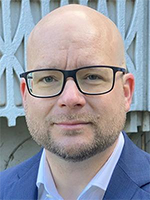
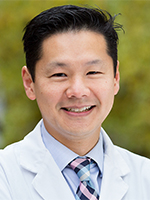
Bringing together experts in urology, urogynecology, neuroscience, nursing and physical therapy, the Centre for Functional Urology and Reconstructive Surgery delivers comprehensive bladder disease care. Centre specializations include research into urinary incontinence in women and men, female pelvic floor disorders and neurogenic bladder issues resulting from spinal cord injuries and neurodegenerative illnesses. Collaboration efforts are also underway at the Centre to establish a multidisciplinary clinic with nurse experts in female urology, urogynecology, physiotherapy and continence.

Collaboration between clinical investigators and immunology and transplantation scientists at the Centre for Kidney Transplantation and Immunology is advancing precision treatments to expand organ donation options, improve organ preservation and prolong transplant longevity. Knowledge gained through this research is making strides towards improved health and quality of life outcomes among renal transplant patients. It is also facilitating the elimination of end-stage renal disease through revolutionary methods and discoveries.
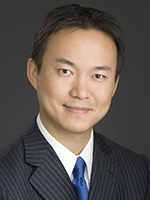
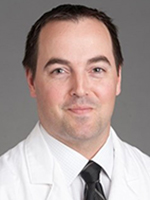
At the Reproductive and Sexual Medicine Centre, experts provide medical and surgical therapies for sexual health and infertility challenges experienced by males and their partners. Through state-of-the-art genomics, stem cell biology, bioengineering and computational modelling, the Centre is developing novel therapies for males challenged with infertility, Peyronie’s disease, erectile dysfunction and other conditions. Researchers are working on the latest in digital diagnostic and therapeutic platforms to advance sexual dysfunction patient care, in addition to innovative erectile dysfunction therapies utilising soft robotics, nanotechnology and artificial intelligence.

The robust adolescent urology program at the Centre for Adolescent and Transitional Urology is an essential component in precision care for children born with urinary tract abnormalities who require a bridge between pediatric and adult care. The Centre includes a clinic at the GF Strong Rehabilitation Centre that supports patients who have undergone extensive reconstructive surgery of their urinary tract due to debilitating conditions, such as spina bifida.

Connecting an interdisciplinary team of experts under one umbrella, the M. H. Mohseni Institute of Urologic Sciences is poised to lead in knowledge generation that accelerates breakthroughs in urological health care and elevates the bar for patient outcomes and quality of life. Developments in this field will also contribute to ongoing efforts to shore up limited health care resources for maximum impact and reach, meeting the needs of an aging population and greater disease complexity through innovative approaches and a long-term vision for exceptional patient care in British Columbia and beyond.
Learn more about the launch of the M. H. Mohseni Institute of Urologic Sciences.


